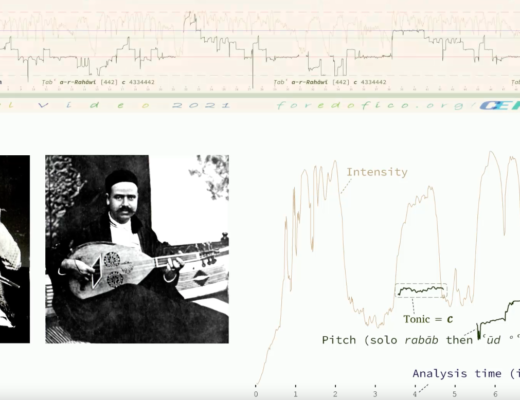
The fourteen analysed instrumental pieces are taken from the Tunisian repertoire of traditional ṭubu’ – mainly improvisations of Muḥammad Ghānim on rabāb and °Khmayyis° Tarnān onʿūd °ʿarbī° – recorded at the 1932 Congrès du Caire. We show that the tools developed in the last few years allow for a thorough analysis of this repertoire and, mostly, that even the most “simple” performances by renowned musicians have much to tell about the music that they tried to represent at this occasion.
